Last updated: September 8, 2023
During a recent visit to our ranch, a curious young guest asked an interesting question, “What do horses like to eat?” While I’ve always had a general idea, I realized the answer might be enriched by a broader perspective. So, I reached out to several horse-owner friends and received a delightful array of responses.
Horses have a fondness for sweet treats, whether they come in the form of candy, fruits, or sugary grains. Favorites often include watermelon, apples, strawberries, bananas, and peppermints. However, due to their intricate digestive system, horses require a significant amount of forage. Among the various forages available, most horses like alfalfa hay best.
Feeding horses correctly is essential for their health and well-being. While they require a consistent and balanced diet, an occasional treat can be a delightful addition. However, it’s crucial to remember that overindulging or offering the wrong foods can lead to health issues. Read on to learn more about what horses like to eat and how to feed them safely.
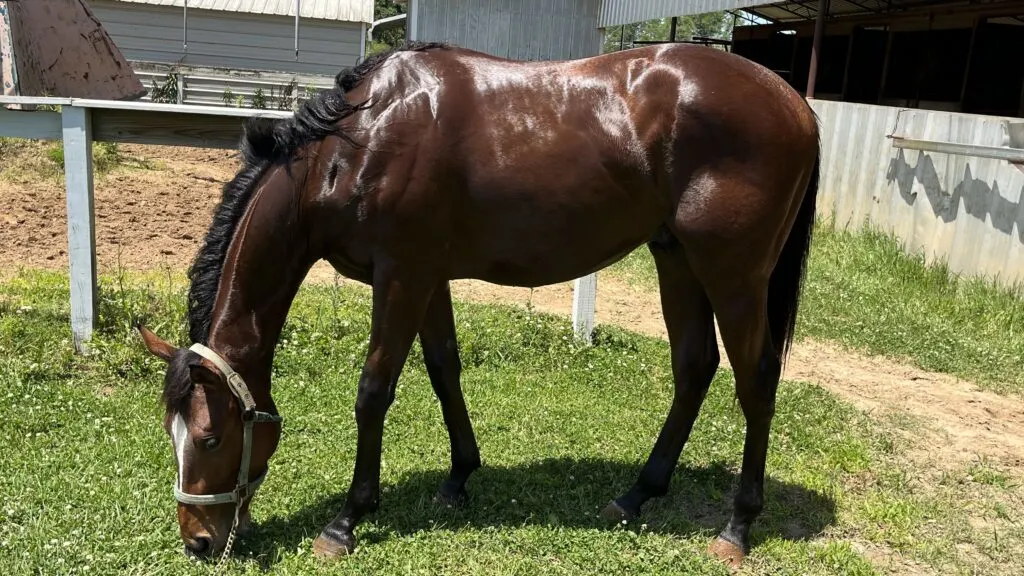
The Basic Equine Diet
Stepping onto a horse ranch, one of the most common sights, aside from the horses themselves, is bales of hay. But what role does this dried grass play in the life of a horse, and what else makes up their everyday diet?
Hay and Grass: The Cornerstones of Nutrition
Hay isn’t just dried grass; it’s a powerhouse of nutrients essential for a horse’s health. Its fibrous nature supports the horse’s digestive system, ensuring everything runs smoothly. Various types of horse hay cater to different nutritional needs:
- Timothy Hay: A popular choice, Timothy hay is rich in fiber and is often recommended for horses that are active.
- Orchard Grass: This softer hay carries a sweet aroma, making it a favorite among many horses.
- Bermuda: An excellent option for less active or overweight horses due to its lower calorie content.
- Alfalfa Hay: Highly nutritious and packed with protein, Alfalfa hay is a great choice for growing horses, lactating mares, or those with higher energy requirements. However, its richness means that it should be fed in moderation and balanced with other forages to prevent overconsumption of certain nutrients.
Grains: Energy-Packed Morsels
While hay and grass lay the foundation, grains are like the power boosters in a horse’s diet, especially for those that are highly active:
- Oats: A horse’s cereal of choice! Oats are easy to digest and provide the necessary energy for your horse’s daily activities.
- Corn: High in energy and fat, corn is great for horses needing to gain weight but should be fed in moderation.
- Barley: This is a warm grain that provides good energy, often boiled to make it more digestible.
- Pelleted Feeds: These are specially formulated mixes ensuring a balanced intake of all essential nutrients.
Water: The Silent Essential
It’s no exaggeration to say water is life, especially for horses. A horse can drink between 5 to 10 gallons a day, sometimes even more during hot weather or after strenuous activities. It aids in digestion, regulates body temperature, and facilitates many bodily functions.
Vitamins and Minerals: The Balancing Act
Just like us, horses need a range of vitamins and minerals for optimal health. Whether it’s calcium for strong bones or Vitamin A for good vision, ensuring a balanced diet is paramount. While many of these essentials come from their primary diet of hay, grass, and grains, sometimes supplements might be needed based on a horse’s specific needs.
In essence, while it’s delightful to watch a horse munch on a carrot or apple, it’s their daily diet of hay, grains, water, vitamins, and minerals that truly keeps them galloping with vigor. Always remember, a happy horse is a well-fed horse!
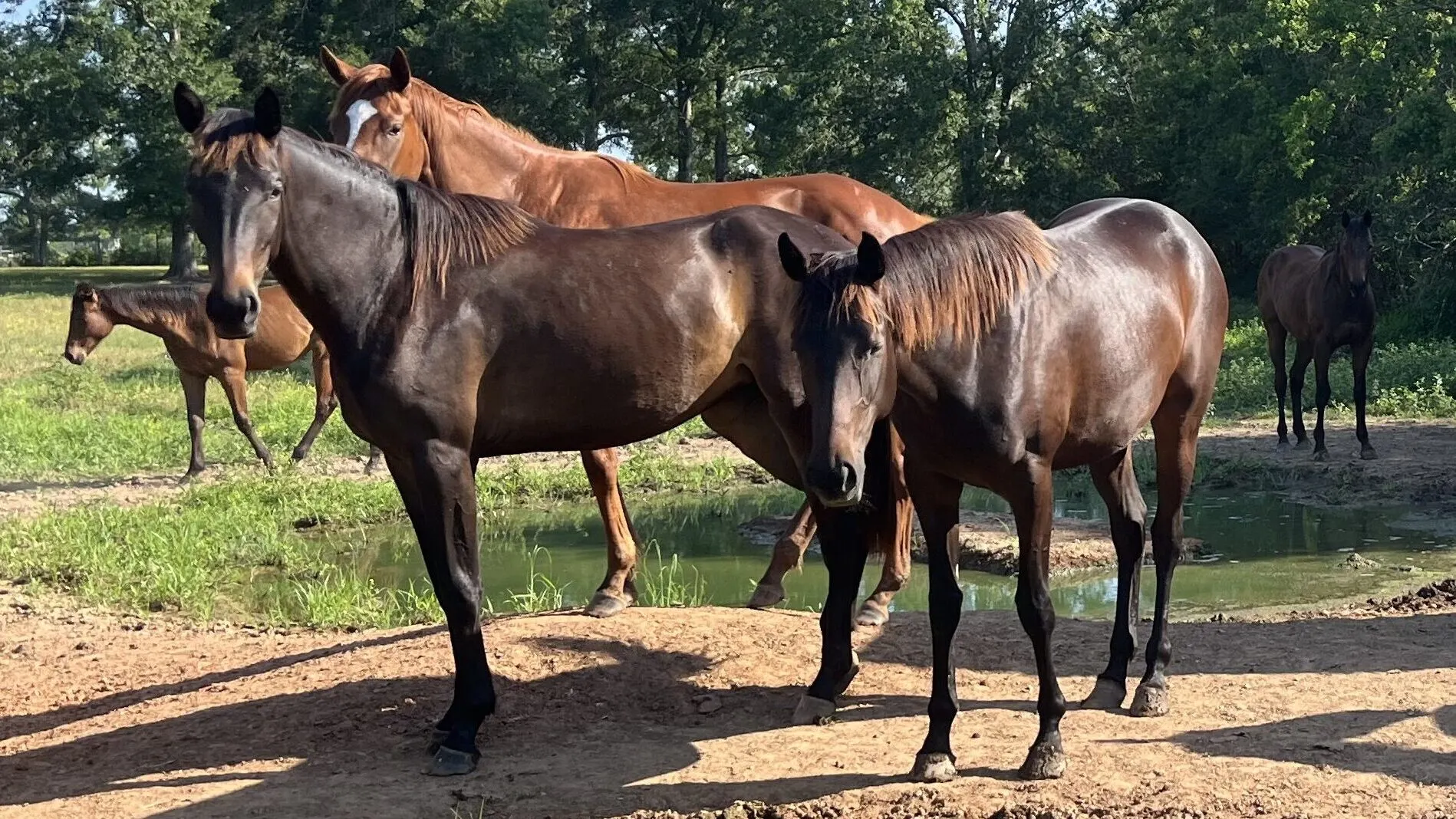
Understanding Your Horse’s Nutritional Needs
Caring for a horse isn’t just about ensuring they have food and water. Like humans, horses’ nutritional needs vary depending on several factors. From the playful foal to the wise old mare and from the leisurely stroller to the competitive jumper, each horse requires a tailored approach to nutrition.
Age Factors: Growing, Glowing, and Going Strong
- Foals: These young ones are still growing, and their diet needs to support that. Rich in protein and vital nutrients, mare’s milk is the primary source of nourishment for foals. As they grow, introducing high-quality forages and grains ensures their bones and muscles develop properly.
- Adult Horses: Once they’ve reached maturity, the focus shifts from growth to maintenance. A balanced diet primarily consisting of forages combined with grains keeps them active and healthy.
- Senior Horses: The golden years bring about some dietary changes. Older horses may struggle with digestion, so softer hays or specially formulated senior feeds become essential. They might also require more vitamins and minerals to keep them in top shape.
Activity Level: Fueling the Workhorse (and the Leisure Horse)
- Leisure Horses: These are the casual strollers, usually needing a basic diet of good quality hay and a mineral and vitamin supplement.
- Working Horses: Horses that are often ridden or that participate in sports need extra energy. This means more grains like oats or corn and perhaps even energy-rich supplements to keep them going strong.
Special Needs: Unique Moments Require Unique Nutrition
- Pregnancy: An expecting mare has increased nutritional needs, especially in the last three months of pregnancy. More proteins, vitamins, and minerals are essential to support the growing foal inside.
- Lactating Mares: Once the foal is born, a lactating mare requires a diet rich in energy, protein, and calcium to produce sufficient milk.
- Horses with Health Conditions: Just like humans, some horses may have health issues like metabolic disorders or respiratory problems. Such horses may require a specialized diet, often with reduced sugars or specific supplements.
To truly understand a horse’s nutritional needs is to recognize that feeding isn’t a one-size-fits-all task. It’s a dynamic process shaped by age, activity, and special moments in life. Always be attentive to your horse’s needs and adjust their diet accordingly. Remember, a well-nourished horse is not just healthier but also happier.
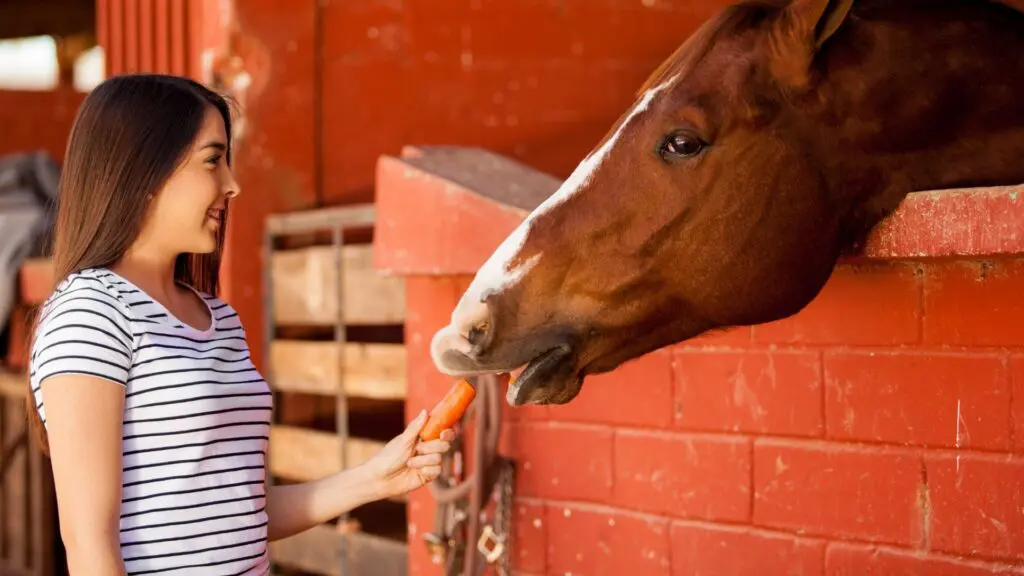
Treats Horses Like to Eat.
Horses can’t survive on treats alone because their sensitive digestive systems require forage to function correctly, but they can eat limited amounts of treats. Some of the treats horses like to eat the most are sweet.
Horses may be picky eaters when it comes to hay, grass, and grains, but not so much when it comes to treats. They like just about anything with sugar, be it sucrose, fructose, or glucose.
But eating too many sugary snacks can make your horse’s health turn sour in a hurry. Horses are herbivores, meaning they’re made to eat plants, not sugar, so give sweet snacks to your horse sparingly or not at all.
Sugar-based horse treats
Sucrose is the typical white crystal we use to cook and make candy, and it’s produced in plants through photosynthesis. We get most of our sugar from sugar cane and sugar beets. In south Louisiana, sugar cane is abundant, and the stalks can be crushed and fed to horses.
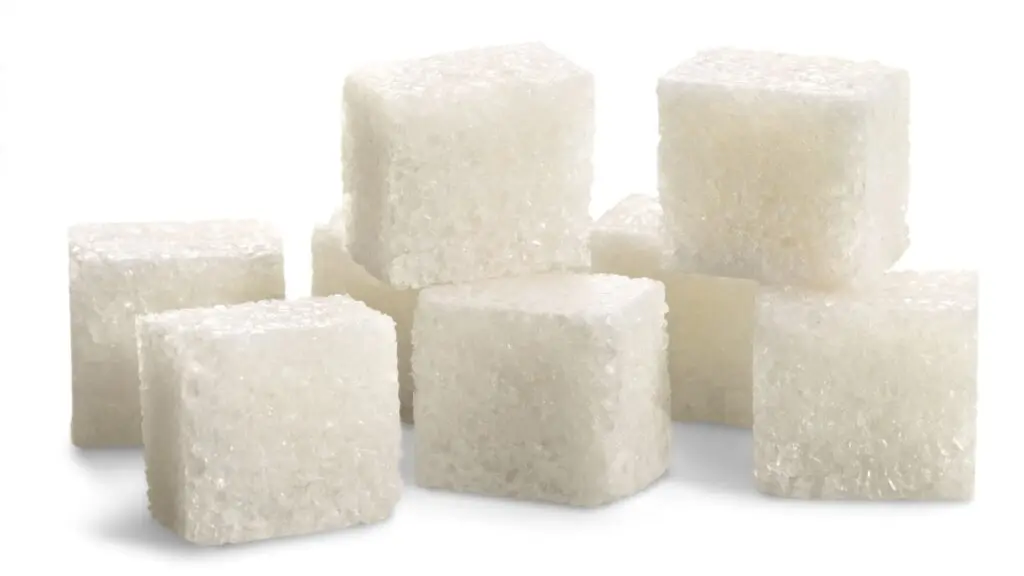
The entire stalk is safe for your animal to eat; just be sure and grind the stiff stalks before feeding it to them. Sugar beets are fed to horses in pulp form and provide healthy fiber. We don’t grow sugar beets in our region, but I have heard that some horses love raw sugar beets, and others won’t eat them.
If you decide to feed your horse raw sugar beets, keep them to a minimum because they have incredibly high sugar content. I also recommend that you cut them into bite-sized pieces.
Hard candy and sugar cubes
Hard candy and sugar cubes are my favorite horse treats. When I was growing up, my grandparents kept sugar cubes on the kitchen table. We always slipped a couple in our pockets to feed the horses.
Besides sugar cubes, our horses like to eat hard candy. But be careful how much sweets you feed your horse, and never feed to horses with equine metabolic syndrome, Cushing’s, or PSSM.
Fruit (fructose) treats horses like to eat.
Fructose is the sugar that makes fruits, some vegetables, and honey sweet-tasting; it is also abundant in corn syrup. Horses like honey; one friend adds it to the feed of his horses, which are picky eaters.
Strawberries
I live ten miles from Louisiana’s strawberry capital, Ponchatoula, Louisiana, where the strawberry festival is held each spring. Many of my neighbors grow and sell strawberries, so we have plenty available to feed our horses.
And horses like to eat strawberries. They are healthy and provide many helpful nutrients, such as magnesium, phosphorus, calcium, and potassium. But there are some precautions you need to be aware of before feeding them to your animals.
First, wash strawberries thoroughly before feeding them, They are sprayed with insecticides in the fields, and these chemicals can make your horse sick.
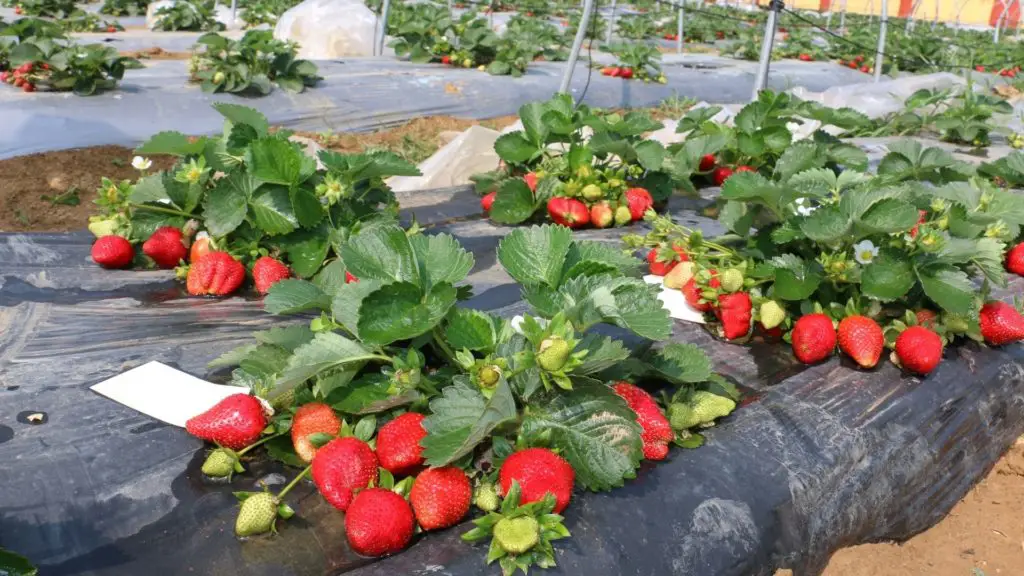
Secondly, don’t feed them too often because they contain high sugar content. Too much sugar can negatively impact your horse, especially one with insulin issues.
And finally, it’s essential your horse doesn’t fill up on strawberries and avoids the necessary forage it needs for proper digestion. If a horse overeats strawberries, it will prevent grazing.
Bananas
Most horses love eating bananas, and they are healthy snacks. Some friends feed their horses the entire banana peel and all. They told me not to peel a banana for a horse because after they eat a peeled one, they will turn their nose up to unpeeled bananas from that point on.
Besides feeding horses whole bananas, I’ve also heard of people peeling, freezing, and cutting frozen bananas into bite-sized treats for horses. I don’t know if it’s practical for most people. I like to have a horse treat ready to go, and horses like to eat them just fine at room temperature.
If you feed your horse unpeeled bananas, assume they are unclean and wash them thoroughly. Bananas contain many healthy vitamins and minerals, including potassium, magnesium, vitamin C, and vitamin D.
Although a healthy treat, you should limit Bananas because they can cause horse abdominal discomfort and digestive issues.
Canteloup
Situated as I am in a bustling farming community, we are surrounded by an abundance of locally grown fruits and vegetables. Cantaloupe, in particular, is a favorite amongst our green-thumbed neighbors. This results in an ample supply of cantaloupe rinds, which we often utilize as a treat for our horses.
Horses like to eat cantaloupe; it’s sweet and refreshing on a hot day. We throw out the cut-up pieces with the rinds. The horses eat the flesh and leave the thin rind. Canteloup is sweet and should be fed sparingly.
It’s a sweet treat and a good source of nutrients, including beta carotene, potassium, vitamin C, folic acid, vitamin B, and antioxidants. These nutrients help your horse stay healthy. But don’t forget to always wash cantaloupe well before feeding your animals.
I’m more particular when cleaning canteloupe than smooth melons because of the chances that pesticides are in their rough exterior crevices.
Whole Apples
Horses like to eat apples, whole, halved, and even cores. They are safe and can be found in a wide range of sweetness. Just like us, horses are individuals and prefer some apples over others.
As with any fruit or vegetable you intend to feed your horse, always wash its exterior to get rid of pesticides. I like to cut my apples into quarters before feeding them to our horses, but my neighbor feeds his animals the apple whole and says he has never had a problem.
I still think cutting the fruit is the safest practice. Apples are a great healthy horse treat. They are easy to store and provide some essential vitamins and nutrients to benefit your animal.
We buy a bag of apples for ourselves, and when they start to turn, they are converted to horse treats. Just remember not to feed them too often because they are full of sugar.
Here are some of the vitamins and nutrients in an apple: potassium, fiber, vitamin A, and vitamin C.
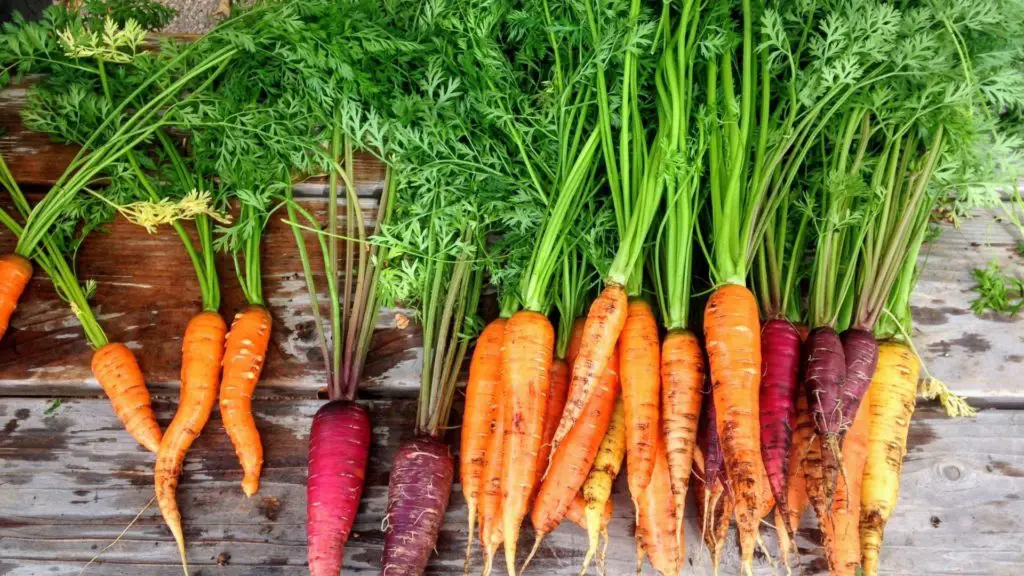
Vegetables That Horses Like Eating.
Celery
Celery is a crunchy vegetable that most horses like; however, I’ve known some picky eaters that didn’t. It’s mostly water and is high in fiber, which benefits your horse’s digestive system.
Celery also contains many critical vitamins and nutrients, including vitamin A, a powerful antioxidant, and is a good source of vitamin C, collagen, phosphorus, and magnesium.
If you decide to feed your horse, celery wash it thoroughly to remove possible insects and insecticides. I also prefer to break the stalks into manageable sizes so it’s easier for our horses to chew.
Lettuce
Horses like to eat lettuce, preferably when it’s fresh and crunchy. Lettuce is a treat enjoyed by animals of all sizes, rats, rabbits, goats, and horses. Lettuce has high fiber and water content and is easy to digest, making it a safe treat.
We typically wash our lettuce and throw the head over the fence. Because it is high in fiber and is primarily water, you don’t have to worry about overfeeding lettuce. A horse can eat as much as they want without affecting its sugar levels.
Cucumbers, zucchini, and squash
Cucumbers are an excellent healthy treat horses like to eat. They are low in sugar and calories and, like lettuce, are comprised mostly of water. Cucumbers provide horses with two essential benefits: they can help reduce inflammation and provide extra hydration.
Cucumbers, squash, and zucchini are all healthy horse treats that you can grow in a small garden. If you’ve never had a vegetable garden, I suggest starting with these three. They are easy to grow, tasty, and healthy treats for your animals.
Always remember to wash your vegetables before eating them or feeding your animals. I typically cut the cucumber, squash, and zucchini before I feed them to our horses. Also, limit the amount you provide them because these vegetables can cause bloating, and your horse may get off their feed.
Here is an interesting YouTube video about feeding carrots to horses. I hope you enjoy it:
Carrots
Carrots are the treat we all agreed was the one horses like to eat the most. A simple carrot is a real treat for horses, providing vitamins essential to horses’ health.
I have heard one person warn against feeding carrots to horses suffering from laminitis. They claimed it causes the horse additional pain and enhances the symptoms.
I had never heard this, so I researched this issue and ran across a study debunking the claim. Apparently, feeding carrots to horses with founder is an issue people consider. You can click this link to read the carrot/laminitis study.
Healthy Homemade Horse Treats
Making treats at home can be a rewarding experience. Not only do you get to control the ingredients, ensuring they’re fresh and healthy, but you also get the joy of seeing your horse relish a treat you’ve crafted with love. Here are some simple and tasty homemade horse treat recipes to try:
1. Oat and Apple Balls Ingredients:
- 2 cups of old-fashioned oats
- 1 grated apple (keep the skin on for added nutrition)
- 1/4 cup of molasses
- 1/4 cup of water
Instructions:
- Mix all the ingredients in a bowl.
- Form into small balls and place on a baking sheet.
- Let them air dry until they’re firm or you can refrigerate them for quicker results.
2. Carrot and Mint Cookies Ingredients:
- 1 cup of shredded carrots
- 2 cups of whole wheat flour
- 1/2 cup of oats
- 1/4 cup of dried mint leaves
- 1/4 cup of molasses
- 1/4 cup of water
Instructions:
- Preheat your oven to 350°F (175°C).
- Mix all ingredients in a large bowl until a dough forms.
- Roll out the dough and cut into desired shapes using cookie cutters.
- Place on a baking sheet and bake for 15-20 minutes or until golden brown.
- Let them cool completely before serving.
Tips:
- Always introduce a new treat to your horse slowly and in moderation.
- Store homemade treats in an airtight container to keep them fresh.
- If you’re uncertain about any ingredient, consult with an equine nutritionist or vet.
Enjoy the process of making these treats, and take pleasure in the joy it brings to your horse! Remember, treats are a supplement to their diet, so they should be given sparingly.
Some Fruits and Plants Horses Shouldn’t Eat.
Tomatoes
Tomatoes are another easy food to grow in a garden. But unlike cucumbers and squash, horses don’t really like to eat them. I had always been told not to feed tomatoes to horses because they would make them sick.
So when I saw our horse standing over the tomato plants in our garden, I was worried he would eat a few before I got to him. But to my surprise, he hadn’t taken one bite of tomato.
When I relayed this story, I was told that my horses’ behavior was typical. Because of the smell or the color, horses generally don’t eat tomatoes, and if they bite into one, they don’t like the taste and move on to something else.
Cabbage, broccoli & cauliflower
If I didn’t know better, I would think cabbage, broccoli, and cauliflower would be good treats for horses. But although they are full of vitamins and nutrients, they create a ton of gas and are harmful to horses.
You should not feed any vegetable with the propensity to create gas in your horse; these include brussel sprouts, onions, and any other in the nightshade family.
Avocados
We love to eat avocados, but they should never be fed to a horse, even in small amounts. Avocados contain persin, which has toxic effects when consumed by a horse.
The persin is in the flesh of the avocado as well as the skin. Your horse could have a bad reaction to ingesting even a small amount. So don’t ever feed your animal avocadoes or discard them anywhere it could access them.
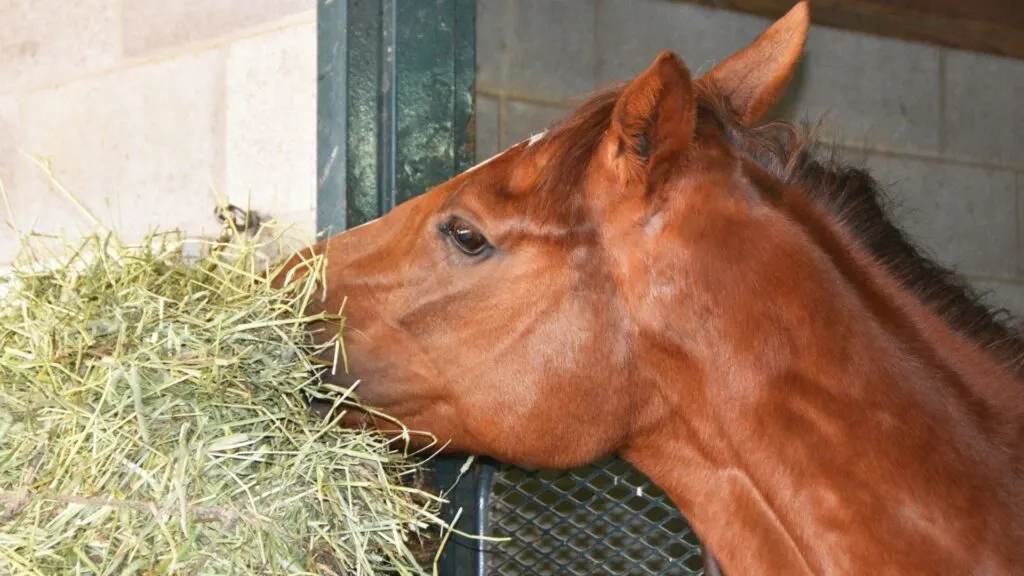
Tips for Feeding Treats Safely
When it comes to spoiling our equine friends with treats, safety should always be the top priority. Here’s how you can ensure those special indulgences are both delightful and safe for your horse:
Importance of Moderation: Just as with humans, too much of a good thing can be detrimental for horses. Overfeeding treats, especially those high in sugar or starch, can lead to health issues such as obesity or digestive upset. Always give treats sparingly, treating them as an occasional luxury rather than a staple.
Observing Your Horse for Allergic Reactions: Horses, like all creatures, can have sensitivities or allergies to certain foods. After introducing a new treat, keep a close eye on your horse for any signs of discomfort, itching, swelling, or digestive troubles. If you notice any unusual behavior or symptoms, discontinue the treat and consult with your veterinarian.
Introducing New Treats Slowly: Variety is the spice of life, but when introducing a new treat to your horse, it’s wise to do so gradually. Start by giving a small amount and observe your horse’s reaction. This not only helps identify any potential allergies but also allows the horse’s digestive system to adjust to the new food.
In essence, while treats can be a wonderful way to bond with and reward your horse, it’s essential to ensure they are given thoughtfully and safely. Always prioritize your horse’s well-being above all else.
Conclusion
There’s something genuinely heartwarming about bonding with your horse over treats. The nuzzle of their nose, the flicker in their eyes – these special moments remind us of the deep connection we share with these magnificent creatures.
However, as we revel in these tender moments, it’s crucial to remember that treats are just that – an occasional delight. The foundation of a horse’s well-being is a balanced and nutritious diet tailored to their individual needs.
As horse owners or enthusiasts, our journey of learning never truly ends. The world of equine nutrition is vast and intricate, and our understanding can always deepen. For those seeking to optimize their horse’s diet or those faced with unique nutritional challenges, consulting with equine nutritionists or veterinarians can provide invaluable insights.
In the end, whether it’s through a piece of apple, a handful of hay, or specialized feed, what we offer our horses reflects our care and commitment to their well-being. Let’s continue to nourish these bonds, ensuring our equine friends thrive in health and happiness.
Join the Conversation!
We’d love to hear from you! Do you have a special treat that your horse simply can’t resist? Or perhaps a heartwarming story about bonding with your equine buddy over a snack? Share your experiences and favorite treats in the comments section below. 🐴❤️🍏🥕
